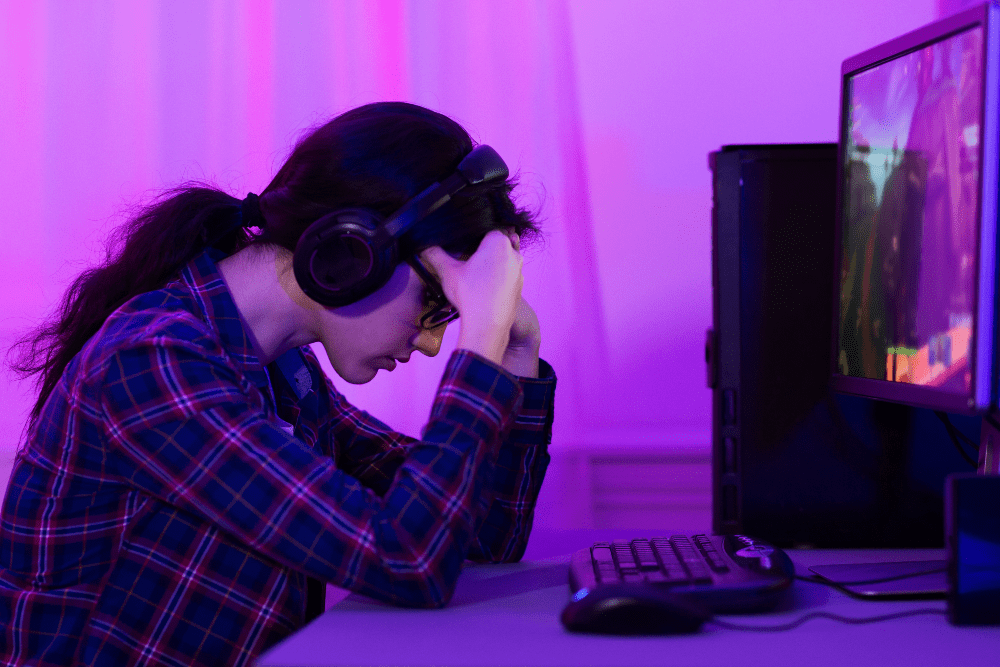
Twitch Streamers Are Being Harassed and Stalked Online
Online harassment has been a problem for as long as the internet has existed. Modern advancements in technology have made it easier for people all over the world to communicate with one another, but it comes at a price. Stalkers can present themselves anonymously or even pretend to be someone else, reducing their risk of being caught and making it more common than ever to be harassed on the internet.
This is an unfortunate reality for many people who are active online. For content creators, internet personalities, and streamers on websites like Twitch, harassment has shaped the way they live their lives. Creators and artists with an online following should understand the dangers of a para-social relationship with their fans and how to prevent it from crossing any boundaries.
What Is Online Harassment and Stalking?
When you think of the term “stalking,” you might imagine someone following another person around or tracking their movements. Online stalking is similar, in that the victim is being monitored by another individual with malicious intent and without consent, but the key difference is that most of it occurs over the internet using information that the victim made publicly available.
Cyberstalking can include several different behaviors, including but not limited to:
- Searching for all of a victim’s social media accounts
- Going through years of a victim’s public online photos
- Hacking into a victim’s online accounts
- Impersonating the victim on a dating website, social networking platform, or app
- Sharing a victim’s personal information, such as their address, place of business, or telephone number, without consent on social media or a dating app
- Sending the victim threatening, lewd, or malicious messages either publicly or privately
- Creating fake accounts on social media or dating websites and attempting to make contact with the victim
Twitch streamers, who are content creators that share live feeds of themselves playing video games on a publicly accessible website, have experienced an increase in online harassment and stalking as the platform rose in popularity. Many streamers have experienced malicious threats, verbal abuse, and even doxxing from anonymous online users.
The Behavior behind Harassment
Some individuals who engage in online stalking consider themselves fans or “friends” of the person they are harassing, whereas others may be acting out of anger or hatred. Whatever the reason for their behavior, stalkers are ultimately looking for control and power over their victim.
Much of the harassment that occurs in the Twitch community is directed at streamers who are women. Popular streamers on Twitch have experienced fans and abusers who sent repeated threats of death and violence, shared their private information publicly, hacked into their accounts, showed up to their home, visited their place of work, and spammed with them with hundreds of emails and private messages.
Victims of internet harassment have been known to suffer lifelong repercussions. Being the subject of stalking can take a mental toll on someone and may result in anxiety, panic attacks, depression, or post-traumatic stress disorder. They may even alter their lives entirely to avoid future interactions or any chance of contact with their stalker.
Practice Internet Safety
Serious harassment is hard to combat, as many victims of cyberstalking have learned. State law enforcement and the FBI have said that they have difficulty dealing with online harassment cases because of how easy it is to cover your tracks and conceal your real identity on the internet. Stalkers and abusers have repeatedly used this to their advantage, in addition to any information that their victims share online with their friends and followers.
Although it is difficult to entirely avoid internet harassment or stalking, certain measures can be taken to reduce the likelihood of it occurring, including:
- Update your social media privacy and make your accounts inaccessible to strangers
- Use security settings like two-factor authentication
- Limit the amount of personal information you share, including where you live or work
- Ask your friends and family not to share personal information about you
- Do not accept friend requests from anyone you do not know
- Never share your phone number or email address
- Routinely update your social media passwords
- Avoid public RSVPs and check-ins
Stalking and harassment should never be taken lightly, even on the internet. If you feel that you might be in danger as a result of being stalked or harassed, contact your local authorities before calling an experienced attorney who can help take your claim to court.
Work with a Dedicated Attorney in Central Florida
Whether you have been the victim of cyberstalking or falsely accused of online harassment, the team at Fighter Law can help you seek justice. Our firm of experienced attorneys has helped thousands of clients in Orlando and Central Florida get the best outcome for their case, and they’re ready to help you.
When you’re ready, call us at (407) FIGHTER (344-4837) or contact us online to schedule your free consultation.
Share:
free case evaluation
Fill out the form below for an free evaluation of your case.
Categories
- Birth Injury
- Boating Accidents
- Car Accidents
- Civil Rights
- Criminal Defense
- Cyberstalking
- Divorce
- Dog Bite Injury
- Domestic Abuse Charges
- Domestic Violence
- Drug Charges
- DUI Charges
- Family Law
- Felonies
- Fighter Law Firm
- Firearms
- Firm News
- Guardianship
- Injunction Removal
- Injunctions
- Marketing
- Personal Injury
- Repeat Violence Injunction
- Restraining Order
- Seal and Expunge
- Self Defense
- Sex Crimes
- Slip and Fall
- Stalking Injunction
- Theft and Robbery
- Theme Park Trespasses
- Traffic tickets
- Uncategorized

